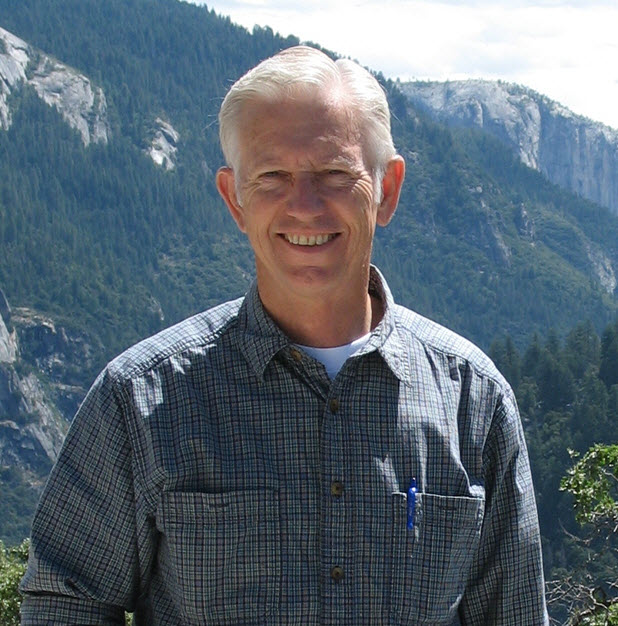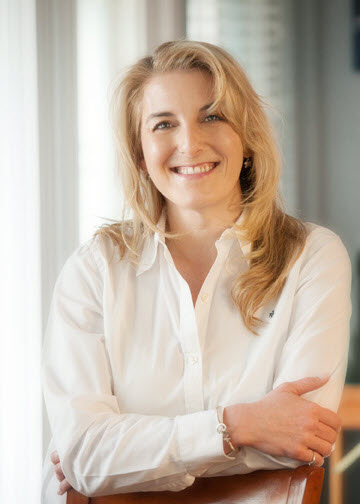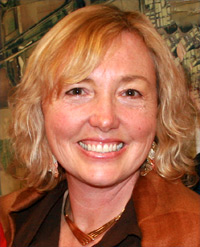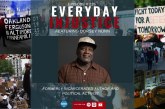Editor’s Note: Every week on Friday the Vanguard will send all five of the candidates a question that they will be asked to respond to by the end of the day on Thursday for a Friday publication. The answers are posted in the order that they were received.
Answers are limited to 350 words.
Question: On Tuesday Beverly Hills became the first city to pass a fracking ban. In past years Davis was very often the environmental innovation thought leader amongst California cities; however, in recent years Davis has been less of a leader, trailing other towns on single-use bag ordinances, wood smoke, and other environmental innovations. Does this trouble you, and if so, how can Davis move to reclaim its reputation as a leader in environmental innovation?
[divider]
 John Munn
John Munn
I would require answers to the following questions to determine if the Davis City Council should spend its limited time and resources on a new issue. First, is it a real problem or opportunity for the residents of Davis? Second, can we really do something with it to benefit people in Davis? Third, is it within the jurisdiction of the Davis City Council? And then, finally, is it affordable? I don’t like to waste time, and doing something just to be first is not a good enough reason by itself.
I am running for the Davis City Council to work for fiscal sustainability, so that we can all afford to live here. If elected, this will be the focus of my efforts on the City Council. If opportunities to improve the environment in ways that also improve the lives of people in Davis are brought to the City Council, then I would consider them based on my education, background and experience while applying the four questions described above.
To give specific answers to this week’s question, I am not troubled by other cities taking the lead on new environmental initiatives because it is okay for others to serve as testing grounds so that we can benefit from their experience, and stay solvent. A city going broke will not be able to be an environmental innovator in any event.
[divider]
 Rochelle Swanson
Rochelle Swanson
Davis is a thoughtful and conscientious community that is highly involved in the policy change process. That process takes time when everyone is encouraged to participate. While we may be slow to adopt some policies, we are able to thoroughly weight all of the factors in such decisions before making them. It is more important that we make good policy change decisions, rather than just trying to make policy changes “first” so that Davis residents have a full understanding of the pros and cons of any policy change.
This process is needed to foster inclusive discussion, participation, and input by all sectors of our community on each issue. Sometimes there may even be value in seeing if a policy change worked in another community first. If it does, we then have valuable information to include in the discussion and if it doesn’t, then we can reexamine the method of implementation and look for possible improvements or modifications. If the policy change does not have intended consequences in other communities, then we can learn from other communities’ issues and go back to the drawing board. In Davis, we have a tendency to innovatively improve the proverbial wheel – not just re-invent it. I believe that we can learn a lot from the successes and setbacks of other communities.
That said, I have been committed to supporting responsible environmental policies, as my voting record demonstrates. I am proud and grateful to have received the endorsement of the Sierra Club. It is my position that Davis’ policies should reflect Davis resident’s priorities, philosophy, and needs.
Finally, I don’t believe we have lost our reputation as being among leaders in environmental innovation. First isn’t always “best.” More importantly, we have a process to make good decisions on environmental policies and invite the public to help us make those decisions with their valued and needed input.
[divider]
 Robb Davis
Robb Davis
This question implies that a focus on external recognition is more important than a focus on attainment of goals. I do not believe that our city’s aspiration should be the label “leader in environmental innovation.” Rather, we should focus on defining clear ends related to waste management and greenhouse gas emission reductions (to name two key areas) and then commit to a set of actions (means) to achieve those ends.
The ends defined should reflect our values as a city, and the means should lay out a path to achieve them.
It is much more important to focus on developing and committing to clear guiding documents (which we have done in the case of the Climate Action Plan and the Integrated Waste Management Plan), that lay out clear objectives and the steps to achieve them rather than trying to be a leader.
We should willingly borrow best practices and learn from other communities. This does not mean we eschew innovation but rather that we seek to implement best practices and adapt them to our needs. As we achieve defined ends other communities may follow our example, but that would be a byproduct of our efforts rather than our goal.
Let me provide two examples from my experience in child health:
- When Jerry and Monique Sternin developed the Positive Deviance/Hearth model, they were focused on the end of reducing child malnutrition using locally available food. They borrowed concepts of positive deviance from social change theory and achieved amazing reductions in child malnutrition. This approach has revolutionized grassroots nutrition programming internationally.
- When Joe Valadez developed lot quality assurance sampling approaches (LQAS) to monitor and evaluate health programs, he wanted to provide front line community health workers with tools to assess their efforts at low cost. He borrowed LQAS from industrial production and adapted it, and in the process has changed the way health programs are monitored across the globe.
In both cases the goal was not to “lead” but to solve real world problems. The outcomes were improved and innovative ways of doing things that have benefited people worldwide.
[divider]
 Sheila Allen
Sheila Allen
Yes, it is troubling that Davis is losing its edge as a leader in environmental innovation. I support the plastic bag ban and I would support a resolution banning fracking. For some of these issues, such as fracking, the resolution would be symbolic.
To my knowledge there is no plan to propose fracking within the city limits of Davis. I would also be careful not to spend a lot of the limited staff time or city resources on symbolic gestures but I believe it is important for us as a community to occasionally take a pro-active position on an environmental or social issue. This process also provides an opportunity for the community to have a conversation on an important topic.
The proposed innovation park could provide an opportunity to introduce cutting edge technology and products that could put Davis on the map as an environmental leader.
[divider]
 Daniel Parrella
Daniel Parrella
It does trouble me, what troubles me more than anything is we have had ample opportunity to take a leadership role on issues but we seem content passing the mantle to someone else.
One that pops into mind is water conservation. Sacramento has decreased its water consumption by 12% in one year. The entire state of California has asked urban districts to decrease 20% by 2020. Our city council followed the grain and asked the city to conserve water by 20% by 2018. I see no reason why we could not at the very least exceed state guidelines. I think we could shoot to use the least amount of water per capita as any city in northern California and be known as the most water conscious city in the region.
My father is the chair of entomology at UCD and has been asking me to bring up the rapid decline of our honeybee populations on the campaign trail. Outside the Sierra Club questionnaire, this seems like a golden opportunity. Something as quirky as “Most bee-friendly city” would suit Davis just fine. As we rip up lawns to conserve water we could focus on bee-friendly native plants that can support native populations. It would bring attention to a troubling issue while reaffirming Davis as a forward thinking environmental innovator.
If we are going to reclaim our reputation as a leader of environmental innovation we need to come up with an area to focus on, and have a steady, unyielding plan to achieve our goals.
I view San Francisco as a true environmental innovator in Northern California. San Francisco wants to become the first major metropolitan area to achieve zero waste. They had a step by step plan that included single-use bag ordinances, food service waste reduction, construction debris recovery ordinance, zero-waste events, and finally, mandatory recycling and composting.
The past few years the city of Davis seems to just be making the motions. We passed a zero waste resolution but even the plastic bag ban seemed to be a piecemeal ordinance rather than a part of a grander plan.






I liked Daniel Parrella’s response the most.
Parrella:
The Integrated Waste Management Plan adopted by the city in 2012 is the grander plan. It lays out the steps the city needs to take to reach its waste reduction goals. The plastic bag ordinance was one piece of this plan.
Hi Michelle
While I see the Integrated Waste Management Plan as a critical part of what would be considered a “grander plan”
it does not address issues such as air contaminants, pesticides, water quality issues, and probably a number of other environmental factors that are not coming to mind. Ideally, I would like to see a comprehensive plan based on collaboration between the groups within our city most involved with each of these issues which may appear separate, but are actually intertwined in ways that may not be immediately apparent.
In the context of Danielle’s comment:
the Integrated Waste Management Plan is the “grand plan”. It lays out a step by step plan to reduce waste and increase diversion rates, moving us close to the cities zero waste goal.
The plastic bag ordinance was not a piecemeal ordinance, it is one of the many steps laid out in this comprehensive plan.
D.D.
What did you like in particular.
While I am strongly in favor of environmental protection and agree with Daniel that we should develop a comprehensive plan for addressing our environmental goals, I prefer Robb’s approach in which the goal is specific problem mitigation rather than leadership itself as the objective. I believe strongly in problem identification, evaluation of what is already being done in other communities or settings, seeing if those practices can successfully be adapted to fit our unique situation, and if not, designing our own solution. Environmental and health and wellness improvement, not leadership, should be the guiding principle.
He seems to have a big picture mentality. He seems to want a comprehensive plan to protect Davis’ beautiful natural resources. (One of the main reasons I raised my two children there.) I like the way he writes. His words are not bureaucratic nonsense. He seems down to earth. e need someone down to earth, who will use plain language. He is not trying to impress anyone with a bunch of fancy words. Bees are necessary and vital. We should protect them. The youth in Davis deserve a fresh, youthful voice on their city council. And the fact that he attended DaVinci doesn’t hurt, either!
Go, Daniel. Protect our bees. I’ll be donating to your campaign.
Thank you!
I strongly prefer Robb’s approach. We don’t need to aspire to be a leader in this area. We need to do the right thing environmentally, while remaining focused on the long ignored fiscal sustainability leg of our three legged sustainability stool.
Adam Smith wrote:
> while remaining focused on the long ignored fiscal sustainability
> leg of our three legged sustainability stool.
I don’t know if it has anything to do with the smoking ban on campus but I seem to be noticing more cigarette butts on the ground around town. I would love to see some $100 fines to smokers for tossing butts uses to help clean up the mess around town.
Leaning over to pick up garbage is good exercise. Whenever someone drops trash, try to pick it up and throw it away. It feels good to help Davis stay pretty. It’s also fun to walk on the beach & pick up trash. And walk over by Putah Creek. Sometimes the wind blows trash out of full garbage receptacles and onto the ground. Or someone is a litter bug. Either way, it feels good to pick someone else’s trash.
I disagree with a one hundred dollar fine.
Davis needs to lead, not follow.
“It does trouble me, what troubles me more than anything is we have had ample opportunity to take a leadership role on issues but we seem content passing the mantle to someone else.”
i think that’s a strong answer.
“This question implies that a focus on external recognition is more important than a focus on attainment of goals.”
i’m going to criticize robb here. i don’t think the issue is external recognition, i think the issue is leadership and we’re not leading right now, we’re following and more importantly falling behind doing the right thing.
Speaking personally, I have no problem following on some of these issues. I’d prefer to let the big cities do it first, let them work out the kinks, they have more resources available to do so. A worn path makes for an easier, less time consuming, and less expensive journey.
sounds good in theory, but in reality we have just as many people whining about woodburning and plastic bags now as we would have when the issues first came up. the problem isn’t that we didn’t raise the issues in a timely manner, it’s that the process got bogged down in this stupid discussions.
and then once we get the policies underway, we get things like the restaurant amendment because bobby coyote has money and the ears of joe krovoza, dan wolk, and others.
Why does our timing matter for the problems you mention? How would have leading on this issue kept us from getting “bogged down in stupid discussions”? My guess is that it would have led to more of these.
for instance, the issue of wood burning came up first in 2009. but people wanted to burn their wood and the council punted it to the next council who tried some midway steps before realizing they needed to do the full monty.
But we are talking about the advantages/disadvantages of leading vs following on these types of issues.
The point that I’m trying to make is that I see benefits in being a follower. Does it solve all problems? No. But I think there are benefits in following in the footsteps of other.
DP, it seems to me your criticism is off base. The question reads:
“… reclaim its reputation as a leader in environmental innovation.”
The question was specifically about external recognition, i.e. “reputation”. It would appear your quarrel is with the question, not the answer. I would agree with you in that.
-Michael Bisch
you’re missing the point here. the necessary work is where the proof lies. just as you whine every time a development is delayed, i whine every time an environmental innovation becomes churned up in the echo chamber for years.
I whine every time a development is delayed? You have me confused with someone else.
-Michael Bisch
You do whine.
I disagree. Whining is annoying. When Michael complains it is entertaining.
Hey, hey! I sense I have some detractors here.
Just to clarify, I didn’t say I don’t whine. I said I don’t whine about delayed developments.
-Michael Bisch
Sheila Allen delivers strike 12 with her answer here.
She claims that fracking is bad, but then says that she doesn’t want to take symbolic votes that waste time. Huh? BTW, the most liberal agency in America – the EPA – studied the issue and said it was safe.
In addition, fracking has led to an explosion in the use of Natural Gas, which is very clean. The use of NG has helped us to drop our CO2 emissions by 20 percent, reaching the Kyoto goals (but Clinton & Gore never signed it).
the epa is made up of a bunch of career bureaucrats, it’s hardly a liberal organization. we’ve had to at times practically sue to get the epa to do their most basic job.
“To my knowledge there is no plan to propose fracking within the city limits of Davis. I would also be careful not to spend a lot of the limited staff time or city resources on symbolic gestures but I believe it is important for us as a community to occasionally take a pro-active position on an environmental or social issue.”
As a feminist I would love to support a woman candidate, but this sentence seems too weak. It’s like you are trying to please everyone, lilke a politician. You need to take a very firm stand and not sit on the fence.
I say improve habitat for more frogs! There was an article in the Sunday Enterprise Op-ed page disparaging the sparging of the Northstar ponds; that such an apporach at aeration was largely futiile–giving up way too easily (for example no mention of new venturi-based technology which entrains air bubbles in a speciall section of water pipe formed to makie passive use of the venturi effect; such that by separating the water inlet from the sparging point; water circulation across the pond is ensured). Tadpoles need oxygenated water! This will help compensate for the recent ruinous burning of the Partansky observation platform; the music of frogs will prevent the memory and spirit of Partansky from croaking.